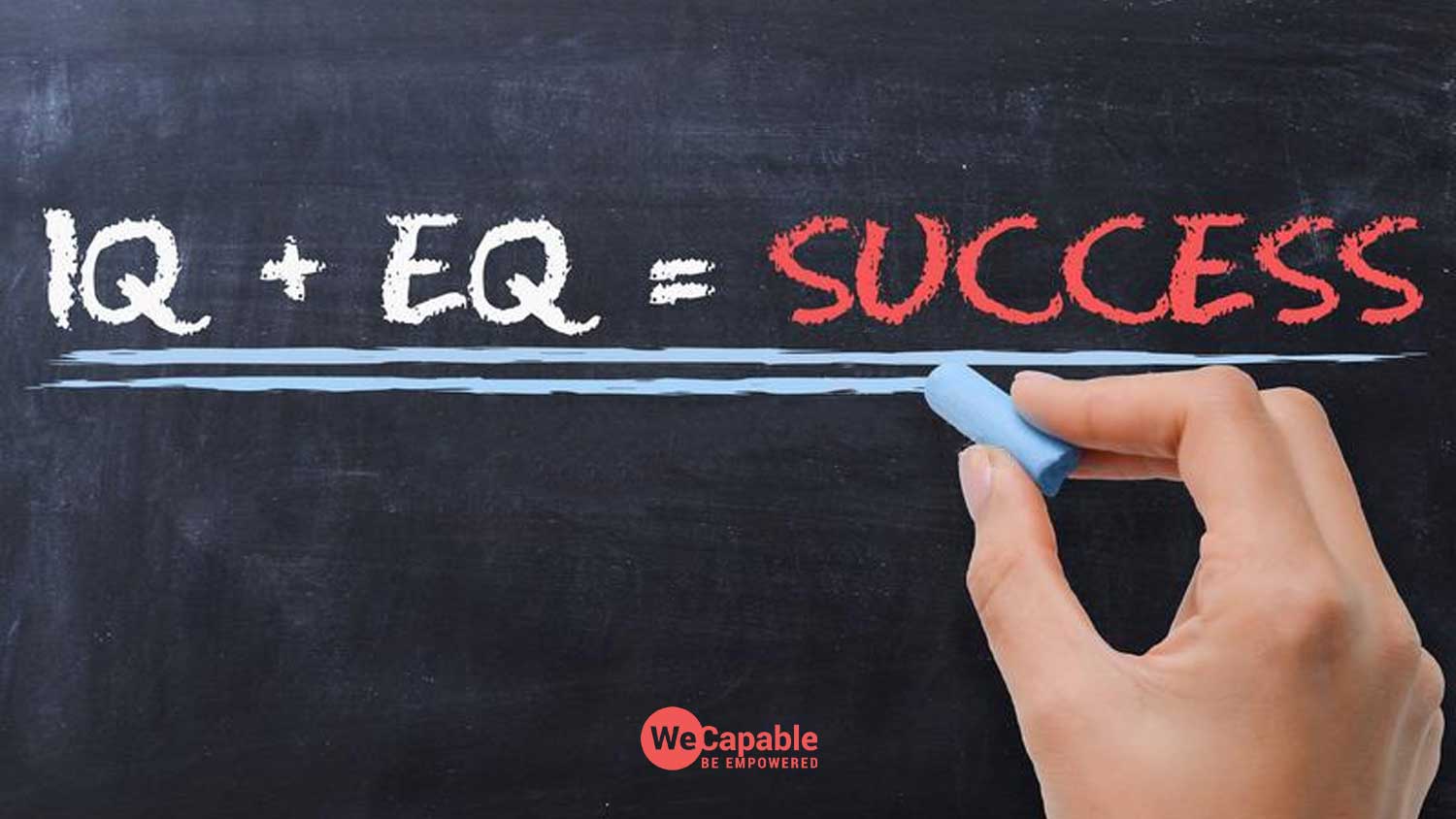The human mind and human intelligence are superbly complex. Researchers and philosophers have tried to understand and define it for centuries. In this attempt, the concept of Intelligence Quotient (IQ) has been developed which has been used for a long time to measure human mental abilities. However, lately, a debate around the meaningfulness of IQ has gathered pace. Several researchers are of the view that IQ tests measure human intelligence only partially. To understand it fully, the concept of Emotional Quotient (EQ) has been in discussion for around two decades now.
Definition of Intelligence Quotient (IQ) and Emotional Quotient (EQ)
Before trying to figure out the relation between the concepts of Intelligence Quotient and Emotional Quotient it is important to understand both of them separately.
Intelligence Quotient (IQ)
In the simplest term, IQ refers to a person’s intellectual abilities. The most common elements included in a person’s ‘intellectual abilities’ include –
- Logical abilities to solve problems
- Ability to plan and strategize
- The ability of understanding abstract ideas
- Ability to learn
- Ability to adapt to changing circumstances
- Ability to grasp and use language
Emotional Quotient (EQ)
Emotional Quotient (EQ) refers to the ability of a person to understand their emotions as well as that of others and to use that understanding to guide one’s behavior. The most common elements included in a person’s ’emotional abilities’ include –
- Ability to understand their emotion
- Ability to empathize with others’ emotions
- Ability to adapt one’s feelings and behavior in changing situations
- Ability to control impulses
- Ability to accept criticism and resolve conflicts
- Ability to communicate effectively
Comparing Intelligence Quotient with Emotional Quotient
| Basis of Comparison | Intelligence Quotient (IQ) | Emotional Quotient (EQ) |
|---|---|---|
| Definition | IQ is a score derived from various standardized tests to measure and assess the intelligence of a person. | EQ is the score derived from standardized tests designed to measure a person’s ability to understand one’s and others’ emotions and control behavior thereof. |
| Abilities | The abilities measured by IQ include logical reasoning, word comprehension, mathematical abilities, abstract and spatial thinking, etc. | The abilities measured by EQ include identifying one’s emotions, understanding one’s and others’ emotions, empathizing with others, controlling one’s behavior, etc. |
| Origin of the Concept | The first mention of the word was seen in English statistician Francis Galton’s paper “Inquiries into Human Faculty and Its Development” published in 1883. The first application of the concept was done by French psychologist Alfred Binet, who designed a test to measure the intelligence level of young school children. | The concept first originated in 1985 through the doctoral thesis of Wayne Payne which was titled “A Study of Emotion: Developing Emotional Intelligence”. The term became popular in 1995 with Daniel Goleman’s book titled “Emotional Intelligence – Why it can matter more than IQ”. |
| Usability | IQ tests are used to identify highly capable and gifted individuals and individuals with special needs and mental challenges. | EQ tests are used to identify people capable of being a leader or team player, individuals who best work alone, and individuals with social challenges. |
IQ vs. EQ: Is One More Important than the Other?
For a very long-time, IQ scores were directly linked to better academic performances as well as better career growth prospects. But, a lot of research and studies have found this claim not to be entirely true. These new studies link emotional intelligence to success in jobs and satisfying relationships. Emotional intelligence is also linked to the ability to handle stress.
However, experts do not agree with the same conclusion about the importance of IQ and EQ. Supporters of EQ claim that “IQ sails you through academics, EQ sails you through life”. While the supporters of IQ claim that IQ contributes to your success whereas EQ which contributes to less than 1% of your success is hyped.
Considering all debates and discussions around IQ and EQ we can safely conclude that IQ and EQ both relate to different qualities of human intelligence and both of them are important. Both of these abilities dramatically affect our overall quality of life. Both of these affect the accomplishments of our life. If a person wants to increase their odds of success in life, they should focus on understanding and developing both kinds of intelligence.
Conclusion
Success in life depends on many factors. Both IQ and EQ are important determinants of success in life, health, wealth, happiness, relationships, and the emotional well-being of a person. While IQ is considered something that is with you since your birth but studies show it can be enhanced through learning and practice. EQ, on the other hand, starts developing in childhood and a person learns it throughout his/her life. For improving the quality of our lives we should focus on improving our lives on multiple fronts rather than focusing on the discussion of which factor is more important for success.
Use the citation below to add this article to your bibliography
"Emotional Quotient (EQ) versus Intelligence Quotient (IQ)." Wecapable.com. Web. May 13, 2025. <https://wecapable.com/eq-vs-iq/>
Wecapable.com, "Emotional Quotient (EQ) versus Intelligence Quotient (IQ)." Accessed May 13, 2025. https://wecapable.com/eq-vs-iq/
"Emotional Quotient (EQ) versus Intelligence Quotient (IQ)." (n.d.). Wecapable.com. Retrieved May 13, 2025 from https://wecapable.com/eq-vs-iq/


Leave a Reply